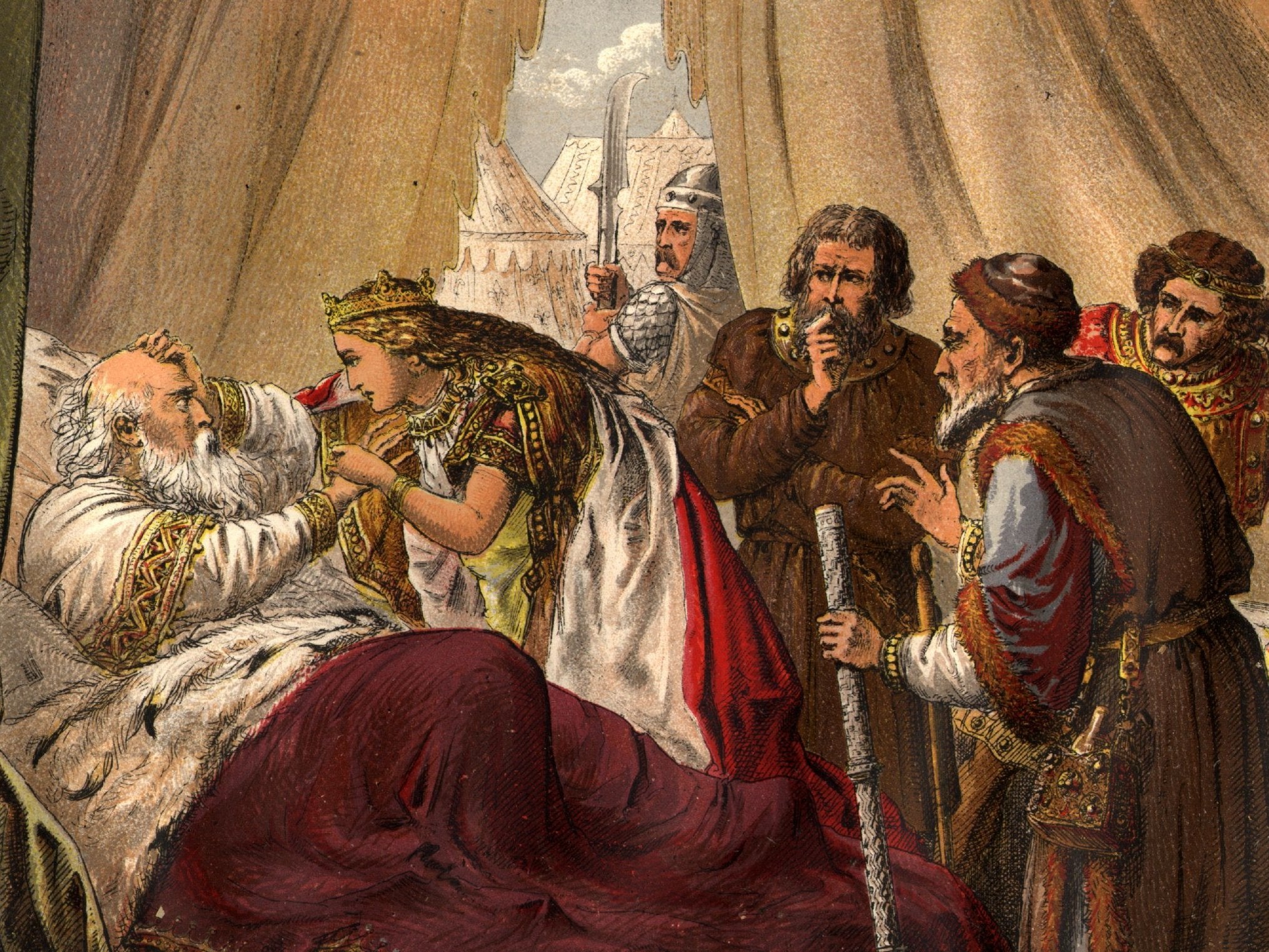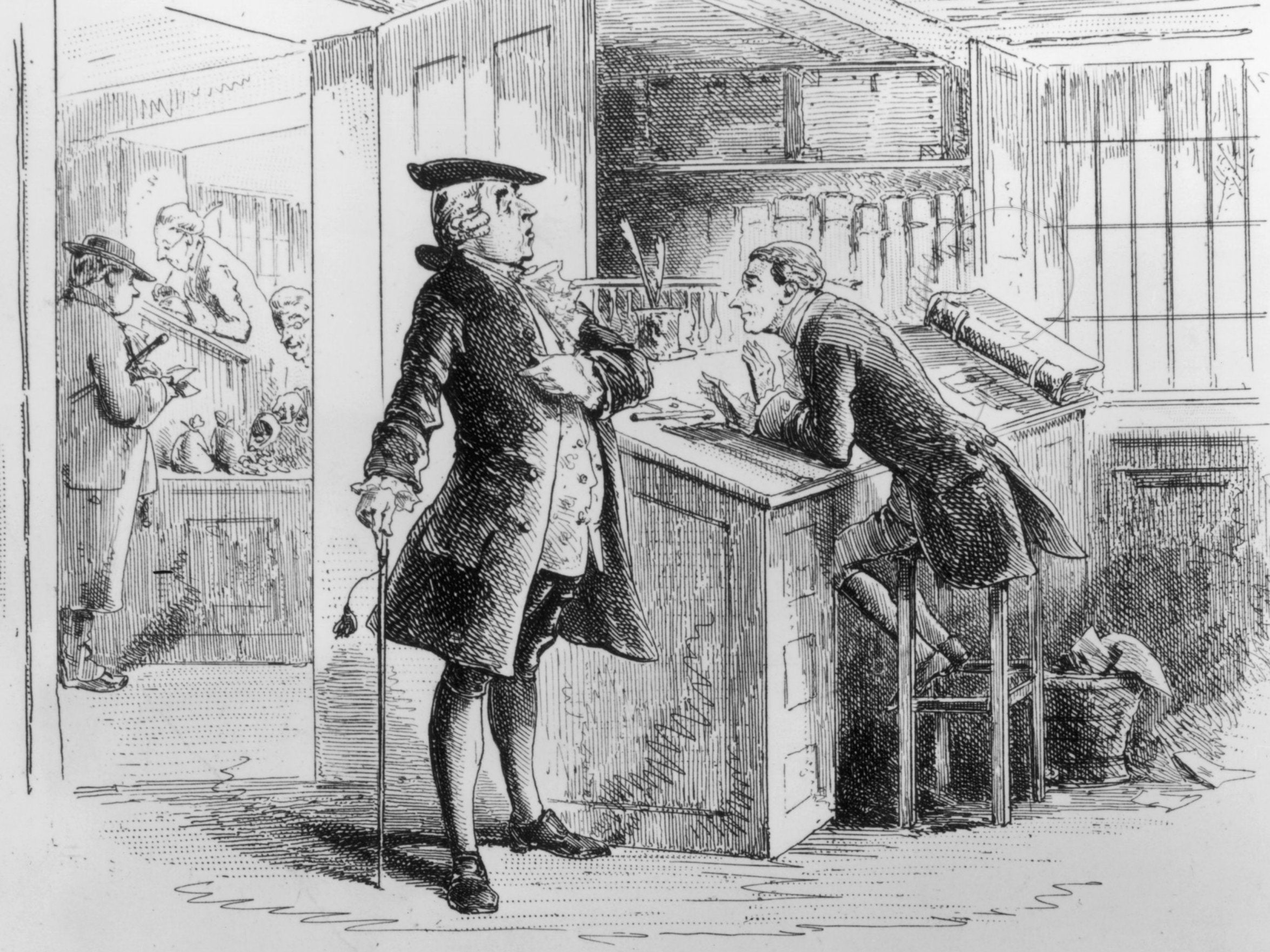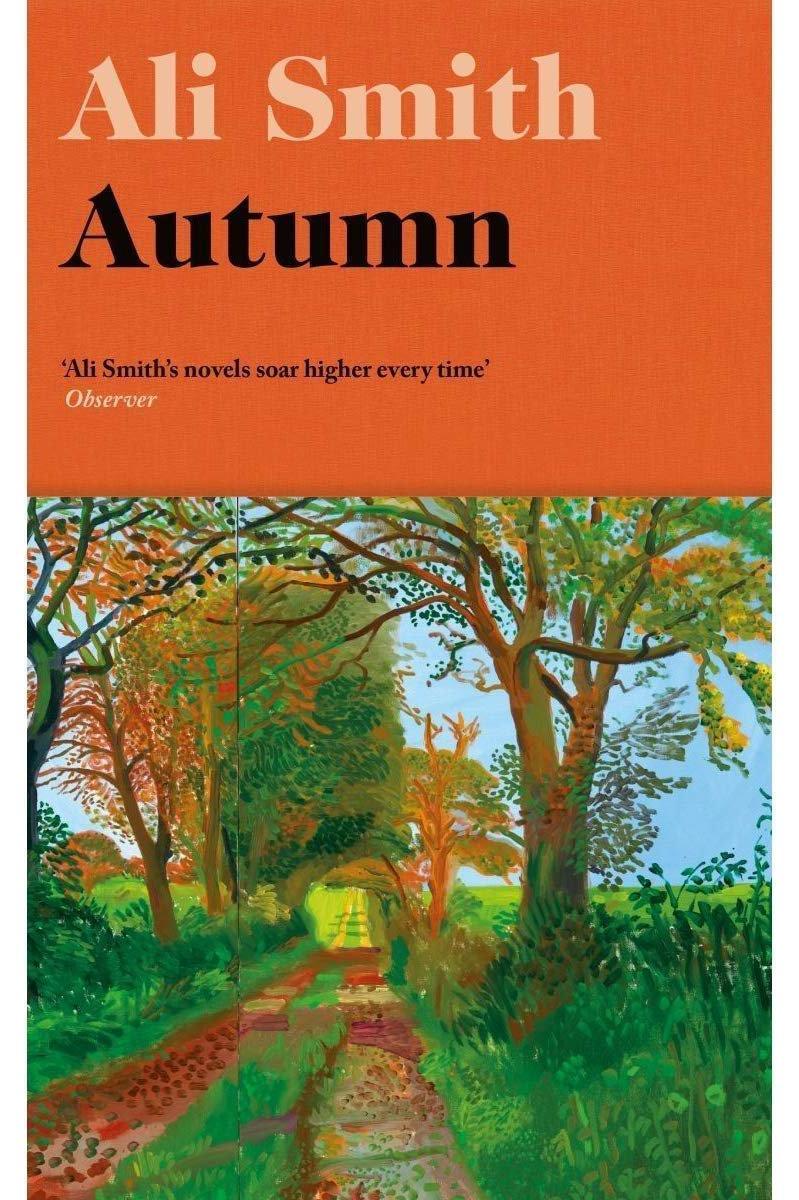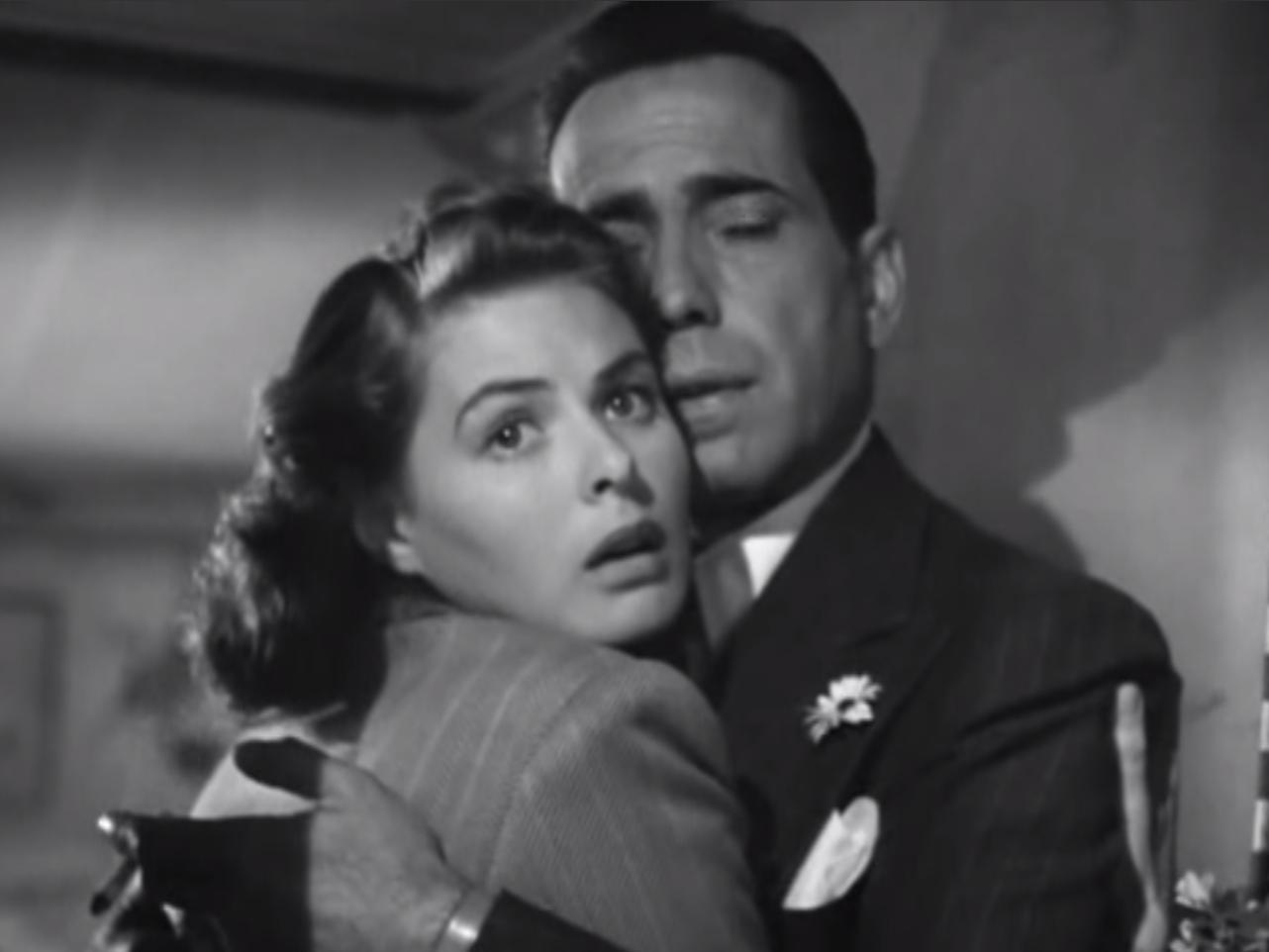Brexit in fiction: How literature latches on to the theme of political divisions
How does culture sort out the bloody mess of social, political and geographical divisions? Politicians and bureaucrats don’t have the answer. The man down the pub doesn’t have the answer. So maybe it’s time we look to literature, writes Erica Wickerson

The chaos of politics, the searing divisions through society, the promised demise of faith in democracy: it might look like the country is in an unprecedented state of strife and upheaval over Brexit. But writers have been talking about this stuff for centuries.
King Lear’s shuffle into dementia as he tears apart his kingdom on a vain whim. Dickens’s revolutionary bloodshed in A Tale of Two Cities conjuring tensions within and across borders. Humphrey Bogart and Ingrid Bergman challenging the imperialist march of the Nazis in Casablanca. How does culture sort out the bloody mess of social, political and geographical divisions? Politicians and bureaucrats don’t have the answer. The man down the pub doesn’t have the answer. So maybe it’s time we look to literature.
Ali Smith’s Autumn – the first in her seasonal quartet (the third in the cycle, Spring, has just come out) – is perhaps the first “Brexit novel” (what a terrifying label!), written in the immediate wake of the 2016 referendum. Its opening lines wave to Dickens: “It was the worst of times, it was the worst of times.” Too right, Ali. “That’s the thing about things. They fall apart, always have, always will.” Here a nod to Yeats’s A Second Coming. Yeats, Smith, Dickens, Shakespeare: they’re all rife with images of separation, objects torn asunder. Yeats writes:
Things fall apart; the centre cannot hold;
Mere anarchy is loosed upon the world,
The blood-dimmed tide is loosed, and everywhere
The ceremony of innocence is drowned
All too apt for today. In last year’s National Theatre production, Ian McKellen’s King Lear actually tears up the map of his kingdom in a haphazard, manically whimsical way. Dickens’s evocation of “Madame La Guillotine”, sensuously and seductively worshipped by the revolutionaries in A Tale of Two Cities, replacing crucifixes and covering the streets with blood, is an object that literally and metaphorically separates. And this is a thread taken up by Smith in the literary descriptions of collage art scattered across Autumn: beautiful and haphazard like fallen leaves, but also artistically juxtaposing separation and difference.
These works show the chopping up of society along multiple axes. Politics. Class. Nationality. Age. A Brexit checklist.
There is a widely held perception that it was the baby boomers who swung the 2016 referendum in favour of Leave, the older generation who have a lot less to lose. This generational divide reverberates through cultural depictions of divided nations too.
Shakespeare’s King Lear is a play about madness and politics, shown through the failings of a father. Lear decides to bequeath his three daughters different portions of his kingdom according to how much they love him; or rather, how convincingly they can express their love for him. Literature is all about conflict. So perhaps it’s unsurprising that not all of Lear’s daughters go along with this display of pride and vanity.
The first two, Goneril and Regan, egged on by their greedy husbands, eagerly flatter their father. But when it comes to the third, Cordelia – the youngest and the favourite – the voice of reason prevails. She tells her father that she loves him just as much as a dutiful daughter should but that there’s no need to flatter his delusion of a good Brexit deal. Ahem. The need for a healthy sized dowry with which she can attract a good husband.
King Lear is so convinced of his worth and his children’s performance of love for him, that he makes the biggest booboo possible just as he’s on the decline: he chops up his kingdom and pisses off his loved ones. The UK is so convinced of Europe’s desperation to be friends, we’ve made the booboo of expecting an Ali Baba Cave of Wonders with the Brexit deal. And it’s about as realistic an expectation as Ali Baba’s treasure.
A Tale of Two Cities is in part about control: who is in charge? Who sets the law? But it isn’t just a battle within France, it’s also across borders
A Tale of Two Cities is also, in effect, about politics and madness, and how the shadows of the older generation linger over the young. It’s set during the reign of terror, late 18th century Paris and London, the French Revolution. And this period is conjured through the twisted fate of a father, daughter, and two men who bear a striking physical resemblance to one another but are diametrically opposed in character. Like Shakespeare, Dickens also shows the father being cause of his beloved daughter’s despair, but, in his case, it is unwitting. It is the father’s accidental testimony that ultimately leads to the death sentence for his son-in-law, Charles Darnay.
Ali Smith’s Autumn is a quiet elegy to a Europe in demise, and the condemned, precarious young who have to watch it falter. It effectively picks up the Shakespearean/Dickensian tale from the perspective of the daughter. The protagonist, Elisabeth Demand: 32 years old, no-fixed-hours casual contract junior lecturer at a university in London, living the dream, her mother says, and she is, if the dream means having no job security and almost everything being too expensive to do and that you’re still in the same rented flat you had when you were a student over a decade ago.

In many ways, she epitomises a generation, or at least part of it. Elisabeth loves and desperately clings to her dying friend, the 101-year-old former émigré, Daniel Gluck – the personification of a disappearing Europe, a cultured, sensitive, intelligent man, full of possibility and mystery. By contrast, Elisabeth has a strained relationship with her mother – a woman more interested in going to the pub than getting to know her neighbours.
These stories show the fuck-ups of the older generation condemning the young to a life of lost possibility – the lost possibility to travel, to live, to love as we want.
But it was also overwhelmingly the case that non-graduates were far more likely to vote to leave the EU than those with degrees. And this brings up the question of class and privilege.

At the heart of A Tale of Two Cities is a raging class war, a class war of caricatured evil. The Marquis St Evrémonde, the aristocrat who needs no fewer than four servants to prepare his morning hot chocolate while people starve in the streets, speeds through Paris in his voluptuous carriage and hits a small child, killing him instantly. He insults the crowd, calls them dogs, curses them for delaying him and not taking better care of their children. Then he goes on his way, barely ruffled. In this climate, the bloodthirsty rising of the proletariat seems to have a pretty strong justification.
A Tale of Two Cities is in part about control: who is in charge? Who sets the law? But it isn’t just a battle within France, it’s also across borders. One of the factors that damns the hero, Charles Darnay, is his decision to live in exile in England. He explains this as an economic immigration: in France, he has no means to live.
A Tale of Two Cities and its modernised re-telling in Casablanca both resolve the turgid concoction of political and romantic tensions (semi-spoiler alert) through acts of self-sacrifice. One person trades places with another. We see this kind of doubling in King Lear too with the half-brothers Edmund and Edgar, alike in name but polar opposites in character. And, much like Harry Potter and Voldemort (a Dickensian/Shakespearean echo?), it seems that in each of these pairs, one must die so that the other may live.
King Lear shows all too tragically how the public performance of affection is prized over the genuine and sincere feeling of love (and what is the Brexit game if not a monstrous public performance of who has what to offer?)
This isn’t really a satisfactory solution to today’s problems. There isn’t the possibility of some kind of self-sacrifice that will ensure continued life in another sense. Maybe a soft Brexit looks like that: a Brexit in name but with all the benefits of the customs union and free movement. But it now seems inevitable that the country is going to be fundamentally divided no matter what the political developments may yield.
But it’s worth remembering that all of these works are also basically love stories – though not necessarily about conventional, romantic love.
King Lear shows all too tragically how the public performance of affection is prized over the genuine and sincere feeling of love (and what is the Brexit game if not a monstrous public performance of who has what to offer?). A Tale of Two Cities shows an impossible love triangle between upstanding French émigrés and disaffected, drunken Brits that cannot end happily. There aren’t enough visas for all the protagonists to escape France, so who will make it out?
Casablanca is a classic romance that transcends geographical borders. As Ilse (Ingrid Bergman) looks into Rick’s (Humphrey Bogart’s) eyes and tells him she can never leave him again, but she does need the two blank visas that will enable escape from Casablanca and the Nazis, the tears feel real, the kiss feels passionate, the violins soar. Later, Rick sees this moment in a different light. He suggests it was a way of manipulating him into aiding the escape.

And so, we go back to King Lear. His elder daughters make eloquent expressions of their love for him, but it’s clear to everyone other than Lear himself that these are opportunistic overtures with one thing in mind: hope for geographical reign and economic power.
The problem for the UK is that the EU isn’t as senile and blinded by vanity as Lear, nor as romantically sentimental as Bogart’s Rick or Dickens’s Sydney Carton. Expressions of love won’t get us through passport control any faster in the post-Brexit world.
So what does Ali Smith’s Autumn suggest? Unlike Edgar and Edmund in King Lear, Charles and Sydney in A Tale of Two Cities, Rick and Laszlo in Casablanca, there is no straightforward doubling in Smith’s Autumn. But perhaps that’s part of the point. Elisabeth and Daniel are opposites in many respects. And yet they are drawn together in a touching, benevolent, platonic bond.
In Autumn, the man in the post office, a frustratingly unhelpful clerk positively filibustering Elisabeth’s attempts to do the “Check & Send” service to renew her passport (all a huge great metonym for anxieties about identity, nationality, freedom to travel, etc), sees Elisabeth as many of this generation are seen: demanding like her name.
“Is your surname really Demand? he says.
Uh huh, Elisabeth says. I mean yes.
A name you live up to, he says.”
The elderly immigrant, Daniel Gluck, paints the name in a different light: “I think your surname is originally French […] I think it comes from the French words de and monde, put together, which means, when you translate it, of the world.” So Elisabeth herself represents a kind of dualism, contrasting ways of being seen. Her first name of course also sounds particularly British in its echoes of the Queen, albeit – as she makes a point of emphasising – with a different spelling.
The contrasting way of seeing things is a point worth pondering in the light of Brexit and the fog of politics. In Casablanca, Laszlo and Rick are both in love with Ilse. But they see her in very different ways. When she tries to explain herself, her past, her motives to each of them in turn, she is confronted with totally contrasting responses. Laszlo: “You don’t even have to say it. I’ll believe.” Compare with Rick: “I wouldn’t believe you, no matter what you told me. You’d say anything now to get what you want.”
Isn’t this really how most of us feel about politicians? They represent these dualisms. And nothing epitomises this quite like the Brexit debate. People choose their side then believe all or nothing, depending on who’s talking. £350m for the NHS. Whether or not it was true seemed to depend more on the listener than the facts.
In reality, there is no possibility for self-sacrifice or a deus ex machina to sort out the cataclysmic mess of parliament, Brexit and national division. The older stories, Shakespeare and Dickens, are tragedies. Someone has to die. Casablanca is more open, though still pretty heart-wrenching. Remember the famous closing line: “I think this is the beginning of a beautiful friendship”. And maybe Ali Smith picks up where Casablanca leaves off. A beautiful friendship. But the ending is left open. This is where we are now. Watching our relationship with Europe die. But at the end of Autumn, Europe’s personification rallies, he wakes up, asks what Elisabeth is reading, smiles. There is still time.
Join our commenting forum
Join thought-provoking conversations, follow other Independent readers and see their replies
Comments